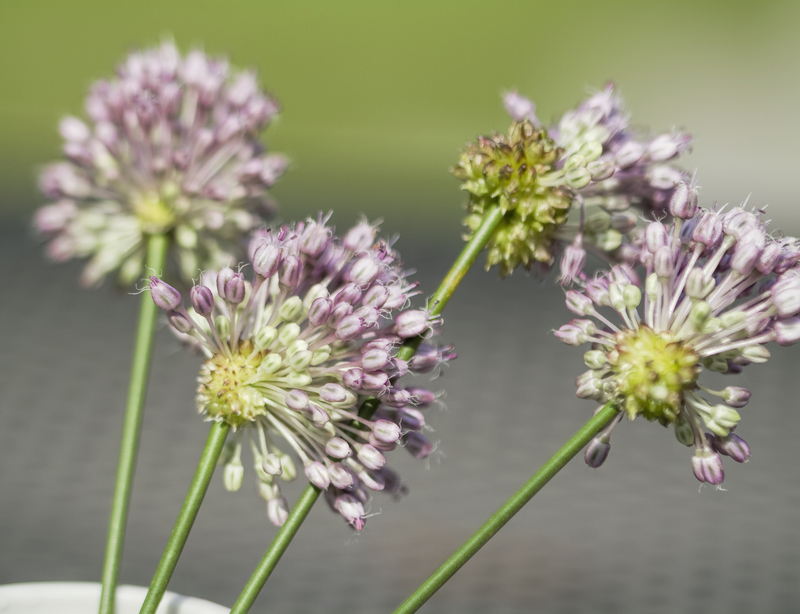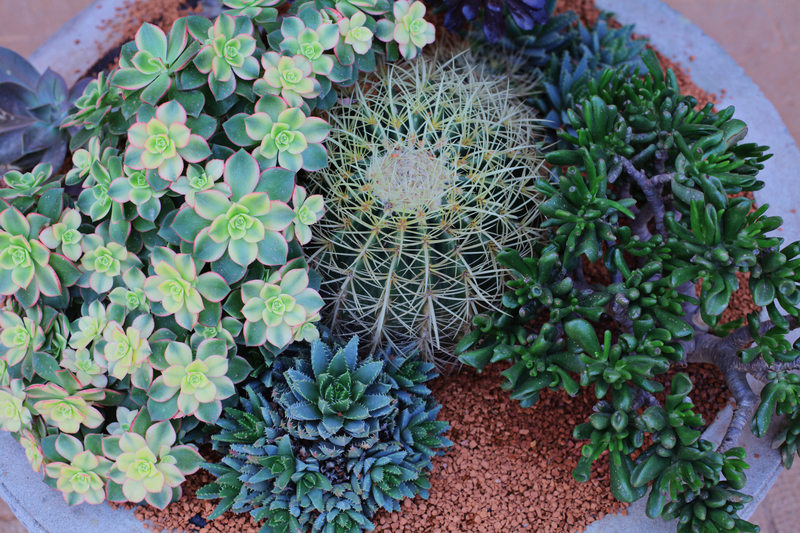Eco-conscious Waste Transformation for Soil
Posted on 11/09/2025
Eco-conscious Waste Transformation for Soil: Sustainable Solutions for a Greener Planet
In recent years, the quest for protecting our planet and promoting eco-conscious living has gained tremendous momentum. Among the most critical factors for environmental sustainability is the management of waste. When waste is disposed of irresponsibly, it endangers our health, ecosystems, and the fertile ground essential for food production. Enter Eco-conscious Waste Transformation for Soil--a practice that not only reduces landfill contributions but also rejuvenates soil health, enabling fertile, productive land. In this comprehensive guide, we'll explore how transforming various types of waste into valuable soil amendments paves the way for sustainable agriculture, improved soil fertility, and a healthier planet.
Table of Contents
- What is Eco-conscious Waste Transformation?
- Why Transform Waste for Soil Health?
- Primary Methods of Eco-friendly Waste to Soil Enhancement
- Types of Waste Suitable for Soil Rejuvenation
- Benefits of Eco-conscious Waste Soil Management
- Challenges and Common Misconceptions
- Inspiring Case Studies in Eco Waste Soil Transformation
- Step-by-Step Guide: Transforming Waste for Your Garden Soil
- Best Practices and Safety Tips
- The Future of Eco-conscious Waste Transformation for Soil
- Conclusion
What is Eco-conscious Waste Transformation?
Eco-conscious waste transformation is the intentional process of converting various types of organic and inorganic waste into valuable resources that can be used to enhance soil health. This method focuses on reducing ecological impact while replenishing the earth's nutrients naturally. The aim is to move away from linear "take-make-dispose" models towards a more circular, regenerative approach.
Think of it as turning banana peels, leaves, unused food scraps, and even treated industrial by-products into nutrient-rich soil conditioners. This not only diverts waste from landfills but also builds strong, resilient soil capable of supporting a diverse ecosystem.
Why Transform Waste for Soil Health?
Soil is the foundation of life--providing the basis for crops, gardens, forests, and grasslands. Yet, with intensive agriculture and synthetic fertilizers, the health of soil worldwide is under threat. Eco-friendly waste conversion for soil restores organic matter, enhances beneficial microbial activity, and contributes to a sustainable food cycle. Key reasons to embrace this process include:
- Reduction of landfill waste and related methane emissions.
- Increase in soil organic matter, improving water retention and fertility.
- Natural support for local ecosystems and biodiversity.
- Lower reliance on synthetic chemicals in agriculture.
- Promotion of a circular economy and climate resilience.
By thoughtfully managing waste, households, communities, and businesses can create a positive cycle that benefits agriculture and the environment alike.
Primary Methods of Eco-friendly Waste to Soil Enhancement
There are several established techniques that facilitate waste transformation for improved soil quality. The choice of method often depends on available resources, climate, and intended outcomes. Below are some of the most impactful approaches:
Composting
Composting is perhaps the most accessible and widely recognized method. It involves decomposing organic waste such as food scraps, yard trimmings, and even certain types of paper into a dark, crumbly humus that enriches soil.
- Aerobic Composting: Utilizes oxygen to break down organic material rapidly, typically within a bin or pile.
- Vermicomposting: Employs earthworms to accelerate the decomposition of kitchen and garden waste.
- Bokashi: Uses beneficial microbes in an anaerobic (no oxygen) process, suitable for a broader range of food waste.
Biochar Production
Biochar is a stable, carbon-rich charcoal produced from plant materials via pyrolysis. When added to soil, it increases nutrient retention, fosters microbial life, and helps sequester carbon, making it a climate-smart waste-to-soil solution.
Mulching from Recycled Materials
Organic mulches, such as shredded wood, leaves, or straw, derived from yard and garden waste, are spread on the soil surface. This technique conserves moisture, suppresses weeds, and gradually decomposes, enriching soil beneath.
Industrial Waste Repurposing
Certain treated industrial by-products (like spent mushroom substrate, paper mill waste, and safe bio-solids) can be transformed into soil amendments. These must meet safety standards to avoid contamination and ensure soil health.
Types of Waste Suitable for Soil Rejuvenation
Not all waste is suitable for eco-friendly soil transformation. The following categories are ideally suited for producing eco-conscious soil amendments:
- Kitchen and Food Scraps (vegetable peels, fruit scraps, coffee grounds, eggshells).
- Yard and Garden Waste (grass clippings, leaves, branches, dead plants).
- Agricultural Residue (crop stalks, husks, seed pods).
- Paper Products (uncoated paper towels, napkins, shredded newspaper in moderation).
- Safe Industrial By-products (e.g., sawdust, mushroom substrates).
Items to Avoid: Meat, dairy, oils, plastic, treated wood, diseased plants, and chemical-contaminated waste are generally excluded to prevent pests, foul odors, and soil contamination.
Benefits of Eco-conscious Waste Soil Management
Transforming waste into soil amendments offers a wide array of benefits, both for the environment and for garden or farm productivity.
- Soil Renewal: Rebuilds degraded soils by replenishing essential nutrients and organic matter.
- Water Efficiency: Improved soil structure retains more moisture, reducing the frequency of irrigation.
- Pest and Disease Resistance: Healthy soils foster robust plants less susceptible to pests and diseases.
- Reduced Greenhouse Gases: Bypassing landfills decreases methane emissions and promotes carbon sequestration (especially with biochar use).
- Cost Savings: Cuts down fertilizer and waste disposal expenses for households, businesses, and municipalities.
- Support for Pollinators: Biodiverse, organically rich soils provide vital habitats for beneficial insects, earthworms, and microbes.
In effect, eco-conscious waste-to-soil strategies represent the intersection of waste reduction and ecological regeneration.
Challenges and Common Misconceptions
Despite its clear benefits, eco-friendly waste transformation for soil improvement faces certain challenges:
- Lack of Awareness: Many still view waste as mere garbage rather than as a resource.
- Improper Segregation: Mixing incompatible wastes can hinder transformation efforts or introduce contaminants.
- Concerns about Odor & Pests: When mismanaged, composting and waste processing can attract pests or produce foul smells.
- Scale Limitations: Industrial and municipal programs face logistical and contamination challenges at large scales.
- Regulatory Barriers: Regulations may limit the use of some treated industrial by-products as soil amendments.
Debunking Misconceptions: With proper education, best practices, and modern technology, these obstacles can be minimized--making eco-conscious waste recycling for healthy soil a practical pathway for most communities.
Inspiring Case Studies in Eco Waste Soil Transformation
Around the world, communities and businesses are leading the way in making sustainable waste transformation for soil health a reality.
Citywide Food Waste Composting in San Francisco
Since introducing mandatory composting, San Francisco diverts thousands of tons of food and yard waste from landfill every year. The resulting compost is donated to regional vineyards and farms, enriching thousands of acres and demonstrating how urban organic waste can create a nutrient loop between city and countryside.
Biochar for Climate-smart Agriculture in Kenya
Several Kenyan farming cooperatives, faced with poor soil fertility and drought, have embraced biochar production utilizing crop residues. Farmers report increased yields, improved soil texture, and greater water retention, all while storing carbon in their fields.
Industrial By-products for Soil in the Netherlands
Innovative companies in the Netherlands process safe organic industrial waste (like mushroom compost and plant fibers) into high-value soil amendments. This game-changing circular economy model supports sustainable horticulture and minimizes industrial waste burdens.
Step-by-Step Guide: Transforming Waste for Your Garden Soil
You don't need to wait for government programs to start making a difference. Here's how you can practice eco-conscious soil enrichment at home or in your community:
-
Segregate Your Waste
Collect organic waste--kitchen scraps, coffee grounds, leaves--separately from plastics and chemicals. -
Choose Your Method
Decide between traditional composting (a bin or pile), vermicomposting (using worms), or bokashi (for limited space/odors). -
Balance Carbon and Nitrogen
Aim for a 30:1 carbon-to-nitrogen ratio. Combine "browns" (dry leaves, cardboard) and "greens" (food scraps, grass clippings) for optimal decomposition. -
Maintain Conditions
Turn your compost regularly to aerate and speed up the process. Keep it moist but not soggy. -
Incorporate Mature Compost
After a few months, your compost will resemble dark, earthy soil. Mix this into your garden beds or pots to boost fertility. -
Explore Advanced Methods
For added benefit, try making or purchasing biochar, or use mulch from pruned branches and leaves.
*Tip: Always research local guidelines for composting and check whether industrial by-product soil amendments are permitted in your area.
Best Practices and Safety Tips
- Only compost plant-based waste (unless using bokashi or special equipment).
- Avoid composting diseased plants and invasive weeds--they may spread via the finished product.
- Monitor moisture and temperature to prevent foul odor or failed decomposition.
- If using industrial by-products, verify they are certified safe for environmental application.
- Always wear gloves and practice hygiene to avoid pathogen exposure.
These best practices ensure your eco-conscious soil amendments are both effective and safe for home, farm, or community use.
The Future of Eco-conscious Waste Transformation for Soil
Looking ahead, innovation and community engagement will define the future of eco-conscious waste soil transformation. Emerging trends include:
- Smart composters with IoT sensors for citywide waste management.
- Microbial and enzymatic treatments to accelerate waste breakdown.
- Expanded use of biochar and advanced char materials for urban farms and green infrastructure.
- Government incentives for circular soil management systems that keep nutrients flowing locally.
As demands for sustainable agriculture and carbon sequestration grow, so too will opportunities to turn waste into the foundation of life--a truly eco-conscious legacy for our soils and future generations.
Conclusion
Eco-conscious waste transformation for soil is one of the most practical and impactful sustainability actions available today. Whether you are a gardener, farmer, policymaker, or eco-minded citizen, there's a role to play in recovering valuable resources from waste streams and returning them to the earth. By adopting these pioneering practices, we regenerate worn-out soils, support food security, combat climate change, and embrace our responsibility as caretakers of the planet.
Begin transforming your waste into life-giving soil today--and cultivate a future where both nature and humanity thrive.


Latest Posts
Design a Simple Garden That Saves Time and Money
Sprouting Creativity: Designing Gardens for Young Minds
Crafting Living Works of Art with Hedge Trimming

